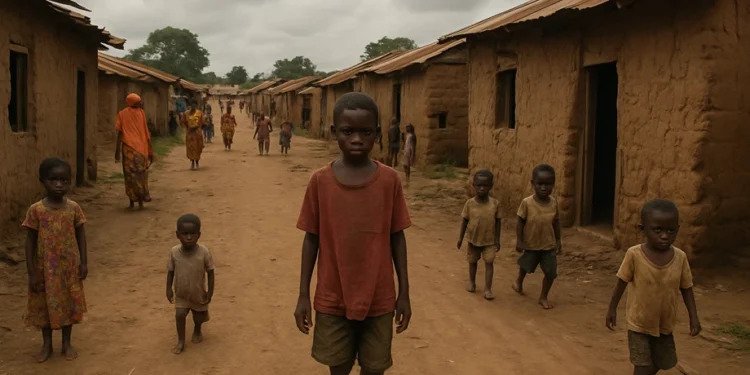312 Million Children in Sub-Saharan Africa Still Live in Extreme Poverty – World Bank & UNICEF

A recent report by the World Bank and UNICEF, Child Poverty: Global, Regional and Select National Trends (September 2025), reveals that despite global progress in reducing extreme child poverty, Sub-Saharan Africa has seen no improvement over the past decade.
Over half of children in the region, more than 312 million, still live below the poverty line.
Globally, around 412 million children under the age of 17 live in households surviving on less than $3 a day, down from 507 million in 2014.
While this represents progress, children remain disproportionately affected, comprising more than 50% of those living in extreme poverty, even though they make up only 30% of the world’s population.
Some regions have made significant strides. In South Asia, extreme child poverty has been cut by more than half over the last decade, with India contributing the largest reductions. East Asia and the Pacific have also made notable progress.
Conversely, the Middle East and North Africa have experienced setbacks, with poverty rates among children projected to nearly double between 2014 and 2024.
Experts emphasize that economic growth alone is not enough to end child poverty. Luis Felipe López-Calva, Global Director of the Poverty Global Department at the World Bank, notes that stronger investments in infrastructure, human capital, and institutions are essential to break the cycle of extreme poverty.
George Laryea-Adjei, Director of Programmes at UNICEF, stresses that ending child poverty is a policy choice, requiring urgent action to ensure access to education, nutrition, healthcare, and social protection.
The situation in Nigeria illustrates the urgency. A recent UNICEF study found that 69.2% of children in Kano State are multi-dimensionally poor, lacking access to education, healthcare, nutrition, and shelter.
Nationwide, poverty is highest in the North-East and North-West, where around 90% of children live in poverty, compared to 74% in the South-East and 65.1% in the South-West. In states like Bayelsa, Gombe, Sokoto, and Kebbi, child poverty exceeds 95%.
UNICEF urges governments to increase budgetary allocations for child-focused programs and highlights initiatives such as Universal Child Benefits in Katsina and Kano as positive steps. The agency also calls on the media to raise awareness about children’s rights, school enrollment, and protection from violence.
Every child has the right to survival and development. Ensuring the best interest of the child must guide all policy decisions, prioritizing their access to education, healthcare, nutrition, and safety. Ending child poverty is not only possible, it is a moral and legal responsibility to guarantee that every child can thrive and reach their full potential.





